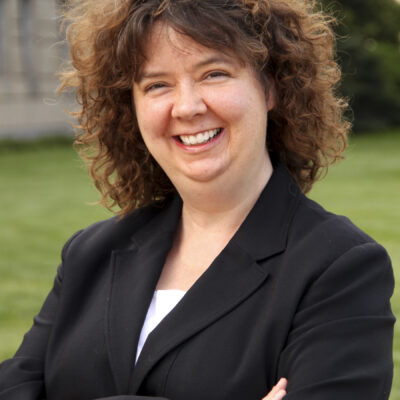When I stood up against random drug testing in my schools, it felt like the right thing to do. I'd been learning about the Constitution and Bill of Rights at school, and it made no sense to me that the very people who were teaching these subjects were also doing something that was so obviously counter to the values we were being taught. My parents raised me to do the right thing, even if it was hard, so I did. So many things, like going to college or even just experiencing life outside my small town, depended on the activities requiring drug testing. I wanted to go far with my life and the drug tests were an unnecessary impediment to that. - Lindsay Earls, ACLU client
Sixteen year old Lindsay Earl was in show choir and the honors society--achievements most schools would applaud. Her Oklahoma high school rewarded her initiative by asking her to step into a room and provide a urine sample as part of their new random drug testing program. Lindsay thought it was unfair and the ACLU agreed, so that case went all the way to the US Supreme Court.
Unfortunately, the court believed drugs were so rampant among young people that it held there was no constitutional violation and permitted Lindsay's school to move forward with drug testing. The court didn't give a green light to all testing--but it did give a cautious yellow light to urine samples with certain limitations and safeguards.
Now several Nebraska schools are considering proceeding through that yellow light. According to news reports, the Board of Education for Northwest Public School in Grand Island is considering a drug testing policy. While Northwest Public Schools in Grand Island weighs their next step, we’ve given them a reminder that the US Supreme Court didn’t give total permission to violate kids’ privacy. The Court required several safeguards to remain in place, including:
- Refusal of the test (or failure of the test) could only result in being forbidden from extracurricular activities—it could not impact the child’s school attendance or normal curricular participation
- No results may be provided to law enforcement
- Parents’ consent was required prior to the test
- The urine sample would be provided in a stall that allowed for privacy and no viewing of the student during the provision of the sample
- The test would screen only for drugs and alcohol—the samples would not be tested for medical conditions
In addition to reaching out to Northwest, we're also currently investigating how many other schools in Nebraska allow for random drug testing of students. We’ll be providing guidance to any schools whose policies don’t obey these rules. Let us know if your school does random drug testing.
Drug testing just isn't the solution to substance abuse these schools should be considering. If a student's test comes back positive, the only punishment available under the US Supreme Court ruling is to banish the student from all future extracurricular activities. In other words, we create a disincentive for kids being active in productive, school-based activities like band, debate, Future Farmers of America, and Fellowship of Christian Athletes.
So while a public school may legally force a child to provide a urine sample—an embarrassing, invasive and humiliating experience—schools should weigh whether or not doing so is really in the best interest of students. Instead of coming up with smart ways to reach the kids huddled behind the gym toking up, random drug testing hits the kids who are doing everything we want them to do by participating in extracurricular activities.
In the 13 years since the US Supreme Court gave a yellow light to student drug testing with significant limitations, experts have had a chance to assess the efficacy of drug testing in schools. They’ve concluded that forcing students to submit to random tests flunks as an effective tool. Medical experts like the National Education Association, the Academy of Pediatrics, and the American Academy of Child & Adolescent Psychiatry all agree that the best way to keep kids off of drugs is to get them engaged in school and extracurricular activities. Drug testing, ironically, just ensures that kids won’t try out for sports or other activities where they may fear being tested.
We'll keep working across the state to raise awareness about this flawed pseudo-solution. Meanwhile, what can you do in your school? Check out these tips from the ACLU.
- Start a conversation with the school board and administration. Drug testing is expensive, ineffective, and alienating. We have resources you can share to convince the school to try to address drug abuse in more useful ways.
- Educate the students and parents in your school district. Everyone has the right to know what the policy is and whether a student may refuse to take the test.
- Mobilize! Write to the local paper, circulate a petition, prepare a letter to the school board that explains what changes you’d like to see.
Contact us for help if you want more information about how far drug testing can go.



